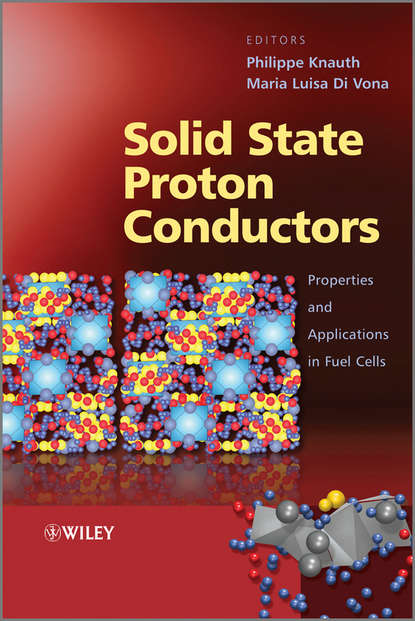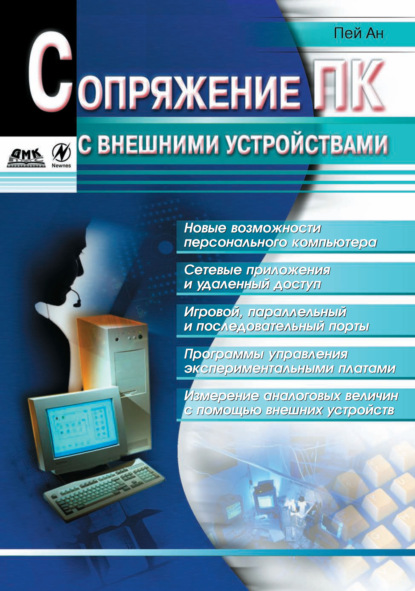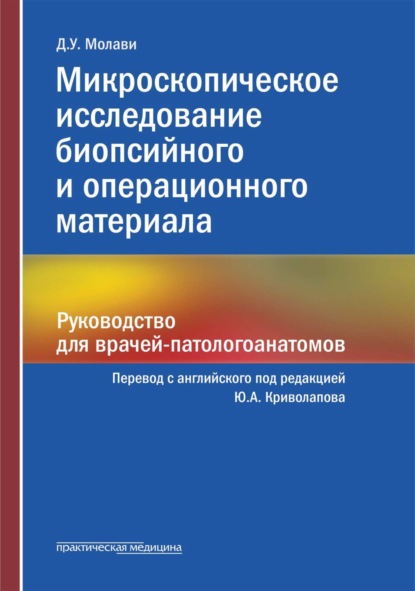Книга "Твердотельные протонные проводники. Свойства и применение в топливных элементах" рассматривает вопросы протонной проводимости в различных твердых материалах, начиная от органических полимеров при комнатной температуре и заканчивая неорганическими оксидами при высоких температурах. Твердотельные протонные проводники являются ключевым элементом во многих технологических инновациях, таких как датчики водорода и влажности, мембраны для водородных электролизеров и, наиболее важно, для высокоэффективного электрохимического преобразования энергии в топливных элементах. В книге описываются основы и физико-химические свойства твердотельных протонных проводников, включая морфологию и структуру твердых кислот, диффузию в твердых протонных проводниках с помощью ядерного магнитного резонанса, структуру и диффузивность с помощью квазиэластического рассеяния нейтронов, широкополосную диэлектрическую спектроскопию, механический и динамический анализ полимерных протонных проводников, а также аб-иницио моделирование транспорта и структуры. Книга также рассматривает перфторированные сульфоновые кислот
Book Review: Solid State Materials: Properties and Application in Fuel Cell Systems Written by Vona, Maria Luiza Di, this book provides an extensive analysis of research findings in the area of proton conducting materials and their potential applications in fuel cell systems.
The book covers a wide range of topics that relate to proton conduction in different types of solid materials, ranging from organic polymers to inorganic oxide compounds. This includes highlighting the collaborative effects played in the dynamic process of proton conduction, as well as diving into more intricate elements such as quasielastic neutron scattering and nuclear magnetic resonance spectroscopy. Exactitude models for transport and structure behind proton conducting polymers are also discussed.
One standout aspect of the book is the inclusion of numerous case studies describing the application of proton conducting components in electrochemical energy conversion, as seen in related fuel cells technology. Readers are given a glimpse into how these materials have already been exploited in the field; alternatively, how they still possess great potential for future enhancements.
While this is a comprehensive look into proton conducting materials, it can always use some more practical examples, illustrations, and figures to elucidate points adequately. Nonetheless, for researchers interested in solid state materials science, this text presents sufficient information to further their understanding.
Written by a recognized expert in the area, this comprehensive book addresses for the first time the theory and applications of proton conduction. More than a compilation of scientific research, it explores the fundamentals as well as applications of proton conducting materials in fuel cells, sensors and other technologies. Framed by the basics of ion conduction, the book covers the morphology and structure of solid acids, the chemistry behind proton diffusion, and the effect of mechanical stress as well. Optical and neutron scattering tools are applied to probe the pore structure and distribution of species. Ultimately, these approaches are used to determine transport properties, which are then modeled using ab initio methods. This work culminates with an in-depth discussion on fuel cell applications and strategies for improving the performance of devices. "Solid State Proton..." provides readers with a broad overview of this important field and will undoubtedly serve as a reference for researchers, graduate students and professionals in materials science and engineering as well as for organic and polymer chemists.
Электронная Книга «Solid State Proton Conductors. Properties and Applications in Fuel Cells» написана автором Vona Maria LuisaDi в году.
Минимальный возраст читателя: 0
Язык: Английский
ISBN: 9781119962496
Описание книги от Vona Maria LuisaDi
Proton conduction can be found in many different solid materials, from organic polymers at room temperature to inorganic oxides at high temperature. Solid state proton conductors are of central interest for many technological innovations, including hydrogen and humidity sensors, membranes for water electrolyzers and, most importantly, for high-efficiency electrochemical energy conversion in fuel cells. Focusing on fundamentals and physico-chemical properties of solid state proton conductors, topics covered include: Morphology and Structure of Solid Acids Diffusion in Solid Proton Conductors by Nuclear Magnetic Resonance Spectroscopy Structure and Diffusivity by Quasielastic Neutron Scattering Broadband Dielectric Spectroscopy Mechanical and Dynamic Mechanical Analysis of Proton-Conducting Polymers Ab initio Modeling of Transport and Structure Perfluorinated Sulfonic Acids Proton-Conducting Aromatic Polymers Inorganic Solid Proton Conductors Uniquely combining both organic (polymeric) and inorganic proton conductors, Solid State Proton Conductors: Properties and Applications in Fuel Cells provides a complete treatment of research on proton-conducting materials.



















